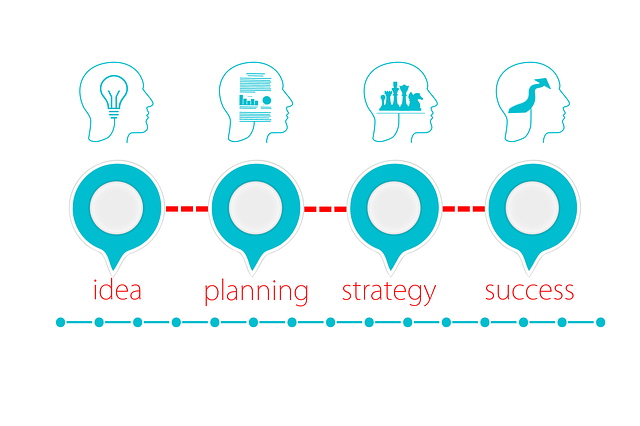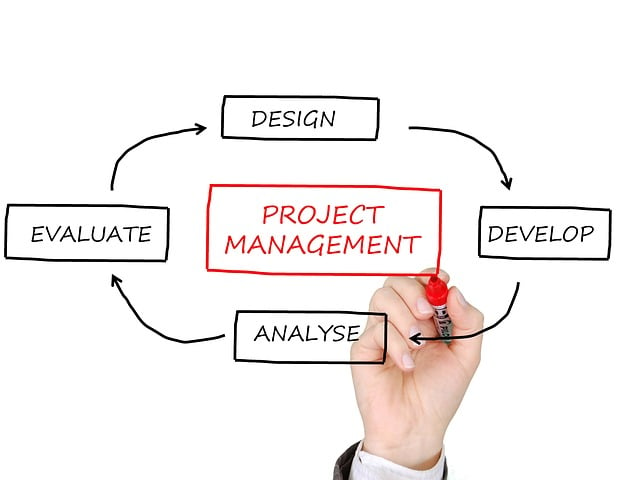Local businesses can significantly amplify their event planning capabilities through strategic social media usage, which offers targeted advertising, real-time engagement via interactive content, and the ability to track event performance with analytics. By understanding their audience's demographics and preferences through these platforms, businesses can tailor their event strategies to maximize participation and success. Interactive features like live Q&As, polls, and contests help maintain audience interest, while integrating diverse content formats ensures a dynamic experience. Paid targeted advertising extends the event's reach beyond current followers, and real-time engagement allows for immediate response to audience needs. Post-event analytics enable businesses to assess performance and gather feedback for continuous improvement. Strategic scheduling and promotion strategies are essential, alongside effective use of hashtags, event pages, and shareable content with clear calls-to-action. Interactive storytelling and gamification can generate excitement and user-generated content, further enhancing engagement. Ultimately, a meticulous post-event analysis helps local businesses refine their strategies for future events, fostering long-term relationships and driving sales through Event Planning for Local Businesses on social media platforms.
Exploring the dynamic intersection of digital and real-world experiences, this article delves into mastering social media event planning for local businesses. With a focus on leveraging platforms effectively, we’ll guide you through crafting strategies that resonate with your audience, managing logistics for seamless execution, and employing interactive elements to maximize engagement. From pre-event promotion to post-event analysis, each section offers actionable insights to measure success and nurture lasting relationships in the digital realm.
- Leveraging Social Media Platforms for Effective Event Planning: An Overview for Local Businesses
- Crafting a Targeted Strategy: How to Identify and Engage Your Audience on Social Media
- Logistics and Execution: Scheduling, Promotion, and Real-Time Management of Social Media Events
- Interactive Elements and Engagement Tactics to Boost Participation in Online Events
- Post-Event Analysis and Follow-Up: Measuring Success and Fostering Ongoing Relationships
Leveraging Social Media Platforms for Effective Event Planning: An Overview for Local Businesses

In today’s digital age, local businesses have a unique opportunity to harness the power of social media platforms for effective event planning. These platforms offer a robust suite of tools that can amplify an event’s reach and engagement, transforming local gatherings into significant community happenings. By creating targeted ad campaigns, local businesses can showcase their events to specific demographics within their region, ensuring that the right audience is informed and excited about what’s being offered. Additionally, leveraging social media’s analytics tools allows for real-time monitoring of event performance, enabling businesses to adjust strategies on the fly for optimal results. Engaging with attendees through interactive content such as polls, live videos, and Q&A sessions not only enhances attendee experience but also fosters a sense of community and loyalty towards the business hosting the event.
Furthermore, local businesses can capitalize on social media’s viral potential by encouraging attendees to share their experiences before, during, and after the event. This user-generated content serves as authentic endorsements, reaching a broader audience and potentially attracting new customers. Platforms like Instagram, Facebook, and Twitter also offer features such as events creation, where businesses can provide all the necessary details about the event, including timing, location, and RSVP options. By utilizing these features effectively, local businesses can streamline the event planning process, ensuring that their events are not only well-attended but also memorable and impactful for the community they serve. Integrating social media into the event planning process is a strategic move that can set local businesses apart in the competitive marketplace. Additionally, leveraging features like live streaming and interactive polls during the event can boost engagement, making attendees feel actively involved while reaching those who couldn’t attend in person. Post-event follow-ups, such as sharing highlights or thanking participants online, further extend the event’s reach and maintain brand visibility. By thoughtfully integrating these strategies, businesses can ensure they’re maximizing local business impact, fostering stronger connections with the community and reinforcing their position as a trusted, go-to resource.
Crafting a Targeted Strategy: How to Identify and Engage Your Audience on Social Media

Crafting a targeted strategy for social media events, particularly for local businesses, begins with a deep understanding of the target audience. Identify who your potential attendees are by analyzing demographic data and engaging with existing customers to discern their interests, behaviors, and preferences. Utilize social media platforms’ built-in analytics tools to gather insights on audience engagement patterns, peak activity times, and content types that resonate most with your community. By leveraging these insights, you can tailor your event content and timing to maximize visibility and participation.
Once the audience is defined, develop a content plan that speaks directly to their needs and interests. Create a mix of content formats, such as live Q&A sessions, behind-the-scenes looks, and interactive polls or challenges, to keep the audience engaged and interested in your event. Use targeted advertising within these platforms to reach potential attendees who may not yet be following your business’s social media accounts. Consistently monitor engagement across all content, refining your strategy based on real-time feedback and data collected from interactions. This agile approach ensures that local businesses can effectively manage social media events, leading to higher attendance rates and more impactful community connections. Event Planning for Local Businesses should focus on the nuances of audience targeting, content optimization, and dynamic engagement strategies that these platforms afford.
Logistics and Execution: Scheduling, Promotion, and Real-Time Management of Social Media Events

Effective event planning for local businesses within the digital realm necessitates meticulous attention to logistics and execution across scheduling, promotion, and real-time management on social media platforms. A well-planned schedule is the cornerstone of any successful social media event. Local businesses must pinpoint their target audience’s active hours on these platforms and select a date and time that maximizes engagement. Utilizing social media tools to set reminders and alerts can help ensure timely execution and prevent oversight, which could lead to missed opportunities for interaction.
Promotion strategies for social media events should be diverse and multi-faceted. Local businesses can leverage targeted ads, influencer partnerships, and community engagement to amplify their reach. The use of hashtags, event pages, and shareable content encourages organic promotion through user-generated content, expanding the event’s visibility beyond the business’s immediate following. Promotional efforts should also include clear calls-to-action that guide participants on how to join, what to expect, and how they can contribute to the event, fostering a sense of community and shared purpose.
Real-time management during the event is equally critical. Engaging with attendees through comments, messages, and live responses keeps the audience invested and maintains momentum. Monitoring social media channels for mentions of the event allows businesses to address any issues promptly, ensuring a smooth experience. Additionally, real-time analytics can provide insights into engagement levels, allowing local businesses to pivot their strategy on the fly if necessary. By integrating these elements into their social media event planning, local businesses can create impactful experiences that resonate with their audience and contribute to their online presence and community relations.
Interactive Elements and Engagement Tactics to Boost Participation in Online Events

During the planning stages for local business events on social media, incorporating interactive elements is pivotal to engaging participants and fostering a sense of community. These elements can range from live polls, quizzes, and Q&A sessions to virtual photo booths and interactive games that align with the event’s theme. By leveraging these tools, businesses can create dynamic experiences that not only attract attendees but also encourage them to actively participate. The key is to design interactions that are relevant and seamlessly integrated into the event flow, ensuring that participants feel like an integral part of the experience rather than passive observers.
To further boost participation in online events, local businesses should explore a variety of engagement tactics tailored to their target audience. These can include gamification strategies such as challenges or contests with incentives, live-streaming sessions with influencers or company representatives for real-time interaction, and personalized content that resonates with attendees’ interests. Additionally, utilizing interactive storytelling techniques and creating shareable moments can increase the likelihood of user-generated content, extending the event’s reach beyond the immediate participants. By carefully crafting these elements into their event planning for local businesses, organizers can significantly enhance audience engagement and create memorable online events that leave a lasting impact.
Post-Event Analysis and Follow-Up: Measuring Success and Fostering Ongoing Relationships

Post-event analysis is a critical component in assessing the success of social media events, particularly for local businesses looking to maximize their digital footprint. Immediately after the event concludes, it’s imperative to gather data and feedback across all platforms involved. This includes tracking engagement metrics such as likes, comments, shares, and hashtag usage, which provide insights into audience interaction and content performance. Additionally, local businesses should evaluate the quality of interactions, monitoring sentiment analysis and direct feedback from participants to understand their experiences. Metrics like reach, impressions, and click-through rates offer a broader view of the event’s impact on potential customers. This data collection enables businesses to identify strengths and areas for improvement in future event planning for local businesses.
Furthermore, successful social media event management extends beyond immediate analysis. Engaging with attendees post-event through targeted follow-up campaigns can foster ongoing relationships and convert engagement into long-term customer loyalty. Personalized follow-ups, such as thank you messages or exclusive offers to participants, help maintain the momentum generated by the event. Local businesses should also leverage social listening tools to monitor ongoing conversations about the event, providing them with valuable feedback and opportunities for relationship building. By analyzing post-event metrics and engaging proactively with the audience, local businesses can enhance their reputation, drive sales, and position themselves as integral parts of their community’s social media landscape. This strategic approach not only measures the success of the event but also lays the groundwork for more impactful future endeavors in event planning for local businesses.
In conclusion, mastery in social media event planning for local businesses hinges on a strategic blend of audience targeting, seamless logistics, and dynamic engagement. By effectively utilizing social media platforms to craft a relevant strategy, scheduling events appropriately, and employing interactive elements that foster participation, businesses can successfully create memorable online experiences. Post-event analysis is crucial for gauging success and maintaining relationships with attendees, thereby paving the way for future initiatives in event planning for local businesses. Embracing these practices ensures a robust presence within the digital realm, ultimately elevating a business’s profile and fostering community connections.
